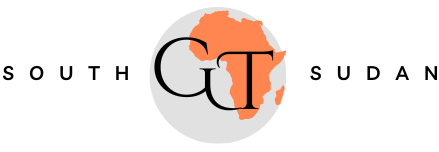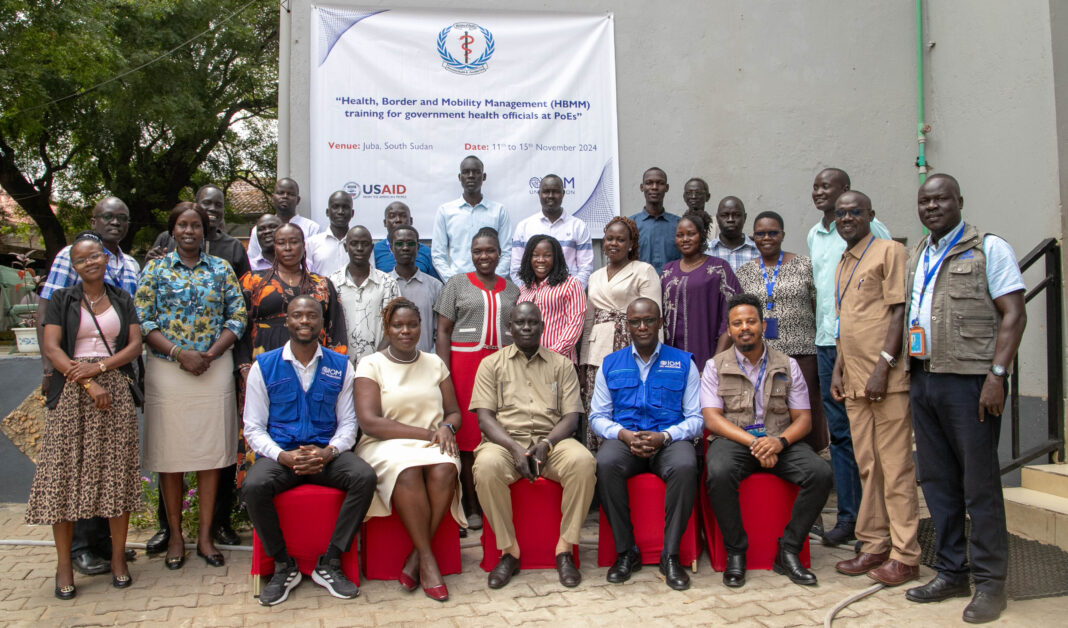Participants during the training on HBMM in Juba. ©IOM2024/Nabie Loyce.
The International Organization for Migration (IOM) trained South Sudan’s government officials on health, border, and mobility management in Juba on Wednesday, 13 November 2024.
This initiative is part of IOM’s ongoing efforts to enhance the capacity of government agencies in managing public health threats and ensuring the health security of migrants and host communities.
The three-day training, which took place from 11th to 13th November 2024, focused on equipping participants with the necessary skills and knowledge to prevent, detect, and respond to public health threats along the mobility continuum.
The program covered a wide range of topics, including communicable disease preparedness, response and recovery, and the implementation of the Health, Border, and Mobility Management (HBMM) Framework.
The HBMM Framework is a key component of IOM’s approach to supporting governments and communities in building migrant-responsive health systems.
By bringing a deeper understanding of mobility dynamics, the framework also facilitates targeted and evidence-informed approaches to communicable disease management within and across borders.
“IOM is committed to supporting governments in strengthening their health systems and ensuring the health security of all individuals, including migrants and host communities,” said Benson Otieno, IOM’s Migration Health Officer.
The training program also emphasized the importance of multisectoral coordination and collaboration in addressing public health challenges.
The participants were encouraged to work closely with relevant partners and stakeholders to ensure a comprehensive and effective response to health threats.
Participants in the training included representatives from various government health departments including technical staff from the Ministry of Health responsible for border surveillance/port health, Immigration, among others who were provided with practical tools and strategies to enhance their capacity in managing health threats associated with migration and human mobility.
The 2005 International Health Regulation (IHR) is an international legal instrument that mandates countries to prevent, detect, assess, respond to, and report public health events. It requires specific measures at points of entry (PoEs) like ports, airports, and ground crossings to limit health threats and ensure safe mobility without unnecessary travel and trade restrictions.
IOM will continue to support government efforts in enhancing health and border mobility management through ongoing training programs, technical assistance, and capacity-building initiatives.
The training on Health, Border, and Mobility Management for Government Health Officials was supported by USAID’s Bureau of Humanitarian Assistance (BHA).




